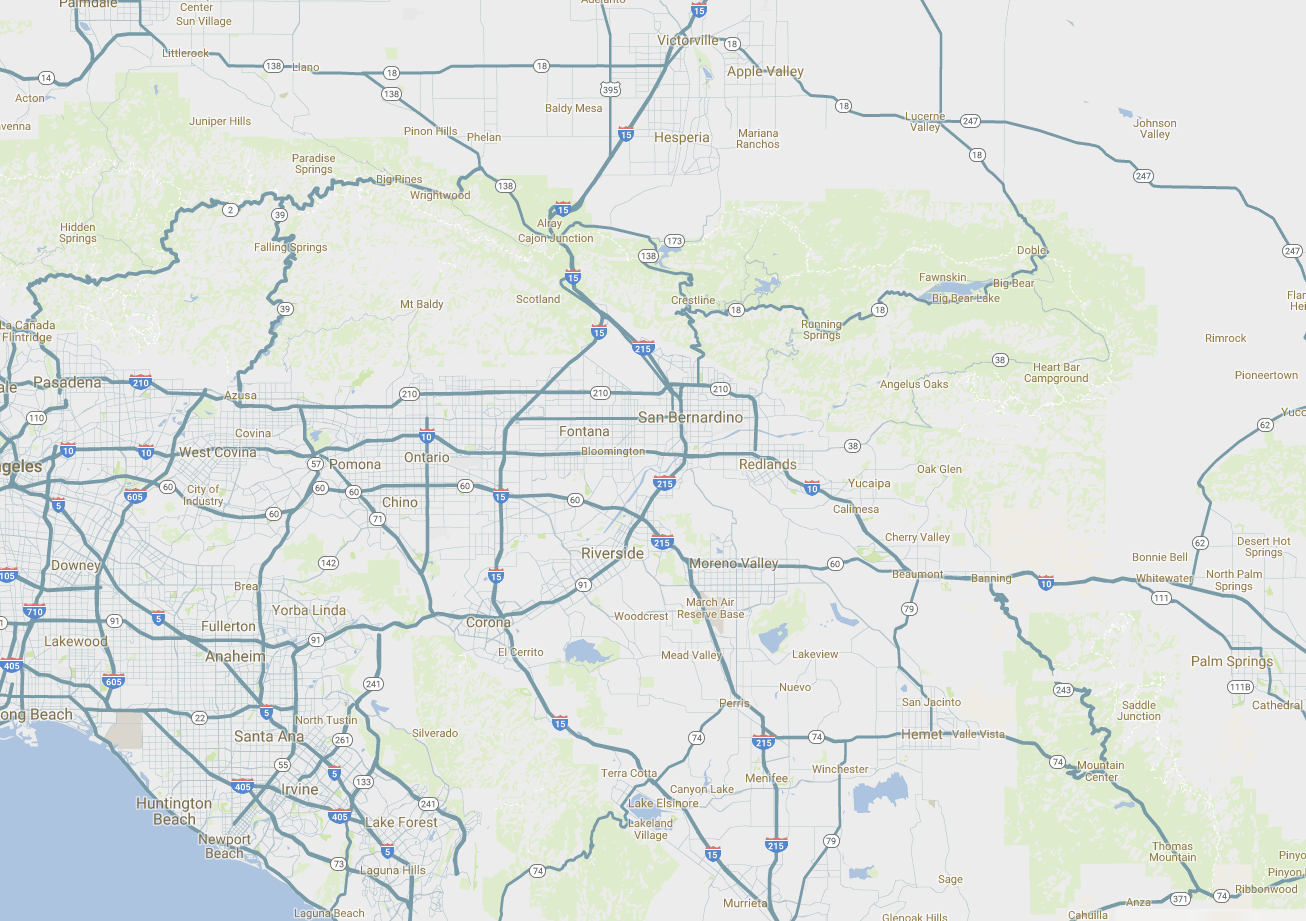What’s the Cost to Charge an Electric Vehicle at Your Home?
Trying to find out how much it costs to charge an electric vehicle at home? While the cost to charge an electric vehicle varies from household to household, you can expect to pay around 13 to 22 cents per kilowatt-hour (kWh) in California, or about $4 to $9 per 100 miles of drive time.
Then there’s the cost of purchasing the EV home charging equipment itself. The upfront cost of getting your home EV-ready, such as installing new EV equipment, should be factored into your overall charging costs.
This blog is a simple cost guide for California homeowners considering purchasing an electric vehicle, or for those who already own one and want to know how much it will cost to charge it at home. We’ll explore each factor to give you a complete picture.
How Much Does It Cost to Charge an Electric Vehicle at Home?
Imagine your home already has the equipment needed to charge your EV, including an EV home charger and all necessary connections. The natural question is: what is the monthly cost to charge an electric vehicle at home? In California, the average amount of energy needed for a typical charging session is about 18 kWh which works out to around $2.30 to $4.00. A kilowatt-hour (kWh) is the EV industry’s equivalent to miles per gallon (MPG). Just like gas prices, your kWh cost varies for several reasons, including:
Battery Size and Vehicle Type: Larger EVs with bigger batteries (e.g., 80–100 kWh) require more energy per charge, resulting in increased costs compared to smaller EVs (e.g., 50–60 kWh). For example, a Tesla Model X with a 100 kWh battery costs more to charge than a Nissan Leaf with a 40 kWh battery.
Below, we’ll examine the most important factors affecting how much charging an electric vehicle can cost.
Battery Size and Vehicle Type: Larger EVs with bigger batteries (e.g., 80–100 kWh) require more energy per charge, resulting in increased costs compared to smaller EVs (e.g., 50–60 kWh). For example, a Tesla Model X with a 100 kWh battery costs more to charge than a Nissan Leaf with a 40 kWh battery.
Below, we’ll examine the most important factors affecting how much charging an electric vehicle can cost.
Factors That Affect Home EV Charging Costs
When readers ask “how much does it cost to charge an electric vehicle,” the answer depends on a few key variables. In California, the biggest drivers are:
1. Current electricity rates (the retail price per kilowatt-hour shown on your electric bill)
2. The energy plan you have (Time-of-Use (TOU) vs. tiered or level-of-use, or EV-specific)
3. The brand and model of electric vehicle you own (efficiency & battery size)
These factors together determine your true at-home EV charging costs. We break down each one of them so you can better estimate the costs for your household.
1. Current electricity rates (the retail price per kilowatt-hour shown on your electric bill)
2. The energy plan you have (Time-of-Use (TOU) vs. tiered or level-of-use, or EV-specific)
3. The brand and model of electric vehicle you own (efficiency & battery size)
These factors together determine your true at-home EV charging costs. We break down each one of them so you can better estimate the costs for your household.
CURRENT ELECTRICITY RATES IN CALIFORNIA
Electricity rates in California are among the highest in the country, which has a direct impact on how much it costs to charge an electric vehicle at home.
As of recent data, average residential electricity rates are around 26 cents per kilowatt-hour (kWh), roughly 20% higher than the national average. However, actual rates can vary widely depending on your utility provider, city, and energy plan.
Many California utilities use Time-of-Use (TOU) pricing, meaning electricity costs more during peak hours and less during off-peak hours. For EV owners, charging overnight or during low-demand periods can significantly reduce charging costs. Seasonal rate changes and high summer demand can also increase electricity prices. Because of these variables, two households charging the same electric vehicle may see very different monthly costs.
Understanding your current electricity rate and when you use power is one of the most important steps in estimating your true at-home EV charging expenses.
As of recent data, average residential electricity rates are around 26 cents per kilowatt-hour (kWh), roughly 20% higher than the national average. However, actual rates can vary widely depending on your utility provider, city, and energy plan.
Many California utilities use Time-of-Use (TOU) pricing, meaning electricity costs more during peak hours and less during off-peak hours. For EV owners, charging overnight or during low-demand periods can significantly reduce charging costs. Seasonal rate changes and high summer demand can also increase electricity prices. Because of these variables, two households charging the same electric vehicle may see very different monthly costs.
Understanding your current electricity rate and when you use power is one of the most important steps in estimating your true at-home EV charging expenses.
YOUR HOME’S ENERGY PLAN AND UTILITY COMPANY
Your utility company and energy plan play a vital role in determining the cost to charge your electric vehicle. The plans offered by your utility provider dictate the bulk of your monthly charging costs. Here’s how different plans impact your cost.
1. Time-of-Use (TOU) Plans: When you charge your EV is more important than how often. Charging during peak hours, when the grid is strained, costs more than off-peak hours.
2. Level-of-Use Plans: The amount of energy you consume determines your costs. A kilowatt-hour of energy costs more at the end of the month than at the beginning.
3. EV-Exclusive Energy Plans: Some providers offer plans with separate rates for EV charging, often requiring a dedicated meter (distinct from the EV charger).
If you’re unsure about available plans, your utility provider can assist with changing yours to optimize your at-home EV charging costs.
YOUR BRAND AND MODEL OF ELECTRIC VEHICLE
The cost to charge an electric vehicle depends on the vehicle you’re charging. Every EV has a watt-hours per kilometer (Wh/km) rating, measuring its efficiency. More efficient EVs cost less to charge. To calculate how much it costs to charge your electric vehicle, use this formula:
Battery Size (kWh) × Electricity Rate ($/kWh) = Cost per Full Charge
Battery Size (kWh) × Electricity Rate ($/kWh) = Cost per Full Charge
Example Calculations for Popular EV Models:
- Tesla Model 3: 58 kWh × $0.30/kWh = ~$17.40 per full charge.
- Chevy Bolt: 66 kWh × $0.25/kWh = ~$16.50 per full charge.
- Ford Mustang Mach-E: 70 kWh × $0.30/kWh = ~$21.00 per full charge.
- Nissan Leaf: 40 kWh × $0.25/kWh = ~$10.00 per full charge.
Comparison Table of Popular EV Models:
|
|
|
|
|
|
|
|
58 |
$17.40 |
$14.50 |
272–358 |
|
|
66 |
$19.80 |
$16.50 |
200 – 280 |
|
|
70 |
$21.00 |
$17.50 |
226–306 |
|
|
40 |
$12.00 |
$10.00 |
149–212 |
Any EV auto dealer in California can provide detailed charging capabilities and costs for specific models to help you understand the cost to charge your electric vehicle.
How Much Do EV Chargers Cost?
Understanding Equipment and Installation Expenses
The costs discussed above apply after a home has been equipped with the hardware needed to charge an electric vehicle.
To get a complete picture of how much you’re spending on charging your EV each month, you should also consider the amortized cost of purchasing and installing EV charging equipment.
At a minimum, this includes the EV charger itself and any necessary electrical upgrades to support it. Installation requirements can vary depending on your home’s electrical panel capacity and the type of charger you choose.
EV chargers come in a variety of brands and models and may cost anywhere from $750 to $2,500+ to have installed by a professional. A major component in figuring the cost of charging your EV comes down to determining the household current your charger will require. Let’s go over the two types of chargers currently available for home use: Level 1 and Level 2.
1. Level 1 Charging: Requires a current of 120 volts. Best for use with Electric Vehicles with smaller batteries. They take longer to fully charge an EV but aren’t as expensive to purchase outright.
2. Level 2 Charging: Requires a current of 240 volts connection. Best for use with more powerful EVs that can be on the road for extended periods of time. They charge much faster than Level 1 chargers, but have a higher upfront cost. These chargers could also require the home’s electrical panel to be upgraded and/or the need for a dedicated electrical circuit which increases the overall costs.
EV CHARGING COSTS VS GASOLINE COSTS IN CALIFORNIA
Comparing the cost to charge an electric vehicle to gasoline costs highlights significant savings. In California, as of September 2025, gasoline averages $5 per gallon, while electricity for EV charging is around $0.13 to $0.22 per kWh.
Example Comparison:
1. Gas Car: A car with 25 MPG, driven 1,200 miles/month, uses 48 gallons, costing ~$240/month ($5/gal × 48 gal).2. EV: An EV (e.g., Tesla Model 3, 3.5 miles/kWh) driven 1,200 miles/month uses ~343 kWh, costing ~$103/month ($0.30/kWh × 343 kWh).
3. Annual Savings: $240 (gas) - $103 (EV) = $137/month × 12 = ~$1,644/year.
Switching to an EV can save you over $1,600 annually, and pairing with solar panels can further reduce the cost to charge an electric vehicle, amplifying savings.
SOLAR OPTIONS FOR EV OWNERS
While a solar panel system isn’t required to charge an electric vehicle at home, it can be an effective way to offset the electricity used for charging. By generating power on-site, solar can help reduce the amount of energy pulled from the grid, especially for drivers who charge frequently or own multiple EVs.
Solar panel systems pair incredibly well with EV charging stations and can be designed to work alongside them, allowing homeowners to use solar energy during the day or store it for later use with battery storage. This approach can help stabilize long-term energy costs and reduce reliance on utility rate fluctuations.
The right solar panel/EV charger setup depends on factors like driving habits, charging schedules, available roof space, and overall household energy use. In some cases, solar alone may be sufficient, while in others, pairing solar with battery storage can provide additional flexibility and control over when energy is used.
Solar panel systems pair incredibly well with EV charging stations and can be designed to work alongside them, allowing homeowners to use solar energy during the day or store it for later use with battery storage. This approach can help stabilize long-term energy costs and reduce reliance on utility rate fluctuations.
The right solar panel/EV charger setup depends on factors like driving habits, charging schedules, available roof space, and overall household energy use. In some cases, solar alone may be sufficient, while in others, pairing solar with battery storage can provide additional flexibility and control over when energy is used.
How Much Do Solar Panels Cost and What Are the Benefits?
How much should you budget for a solar panel installation? The price to install solar panels in the Inland Empire area typically ranges from $3 to $4 per watt but can be as high as $5 per watt.
At those per watt rates, homeowners in California can save on average $50,000 to $150,000 in energy bills over the system's lifetime. Homeowners who have an EV charger at home could see even more savings!
Many homes across California are either solar-ready or solar-equipped. With solar panels installed, homeowners can see a substantial reduction in energy costs, putting rates in line or below the national average (in some cases, significantly lower!)
Another benefit of solar is that it can mitigate some of the pain of increasing energy prices. Energy prices are fickle and can change at the drop of a hat. With solar panels, you’re more prepared to weather any cost hikes associated with California’s energy grid.
While rates in California tend to be higher than the national average, they can be offset by solar thanks to California’s higher-than-average number of sunny days.
At those per watt rates, homeowners in California can save on average $50,000 to $150,000 in energy bills over the system's lifetime. Homeowners who have an EV charger at home could see even more savings!
Many homes across California are either solar-ready or solar-equipped. With solar panels installed, homeowners can see a substantial reduction in energy costs, putting rates in line or below the national average (in some cases, significantly lower!)
Another benefit of solar is that it can mitigate some of the pain of increasing energy prices. Energy prices are fickle and can change at the drop of a hat. With solar panels, you’re more prepared to weather any cost hikes associated with California’s energy grid.
While rates in California tend to be higher than the national average, they can be offset by solar thanks to California’s higher-than-average number of sunny days.
Want to Speak with an Actual EV Charging Expert? Burgeson’s Can Help!
Burgeson’s specializes in at-home EV chargers, power upgrades and solar panel installations. Our electrical consultants are experts in the industry and will give you a custom assessment of how much it costs to charge your electric vehicle at home and a better idea of your options.
When you’re ready to schedule an in-home consultation, call us at 909-792-2222 or request an appointment below.
When you’re ready to schedule an in-home consultation, call us at 909-792-2222 or request an appointment below.












